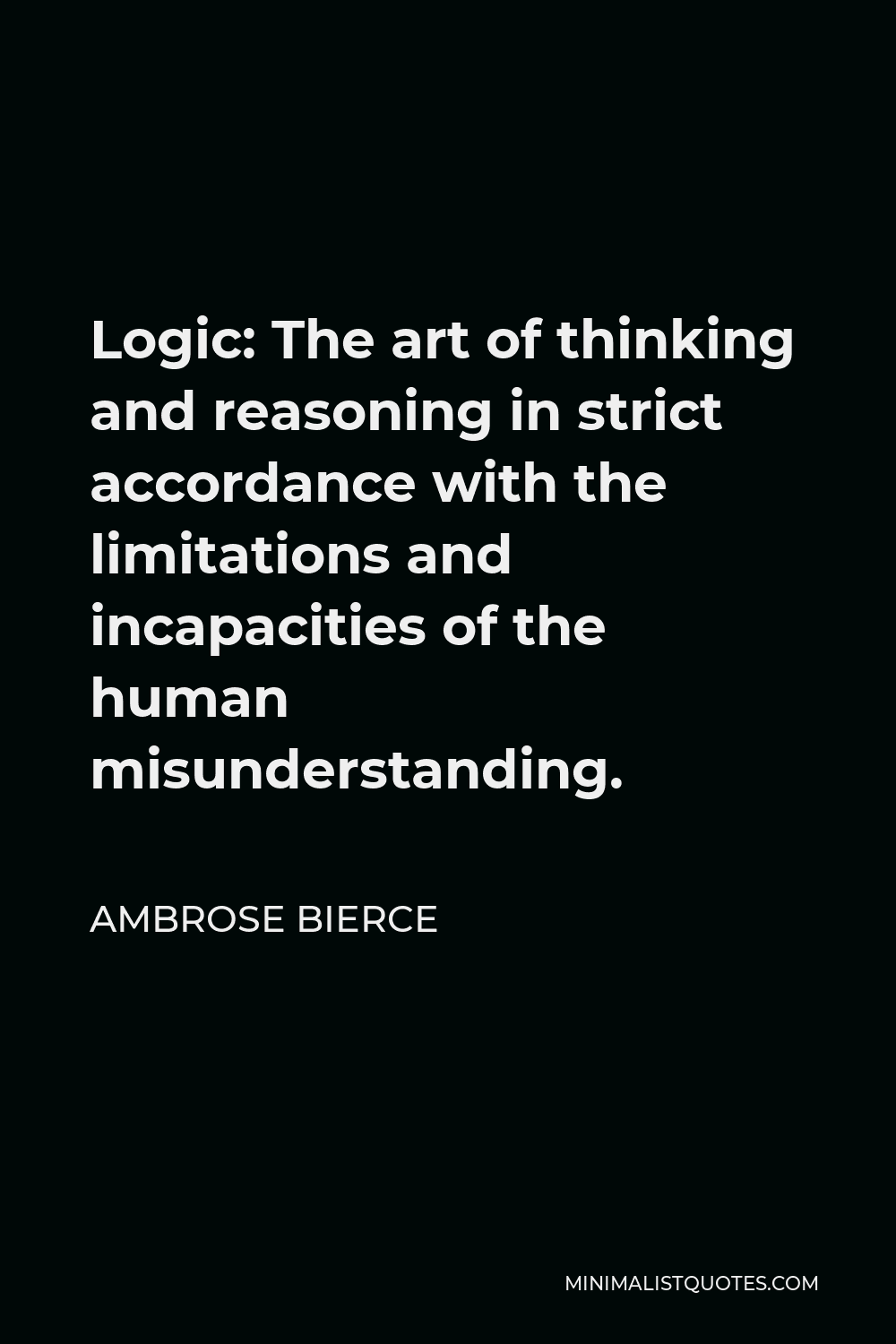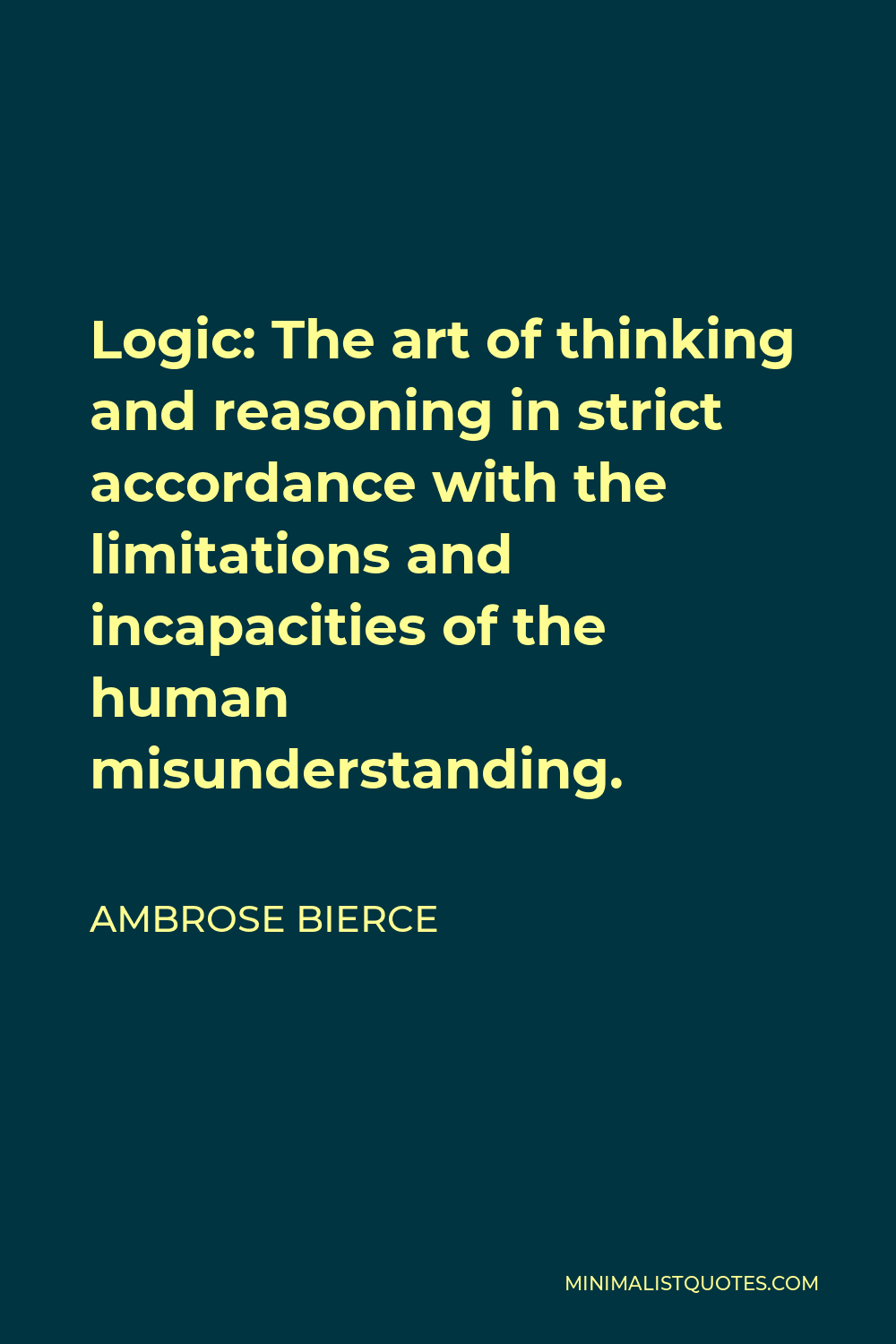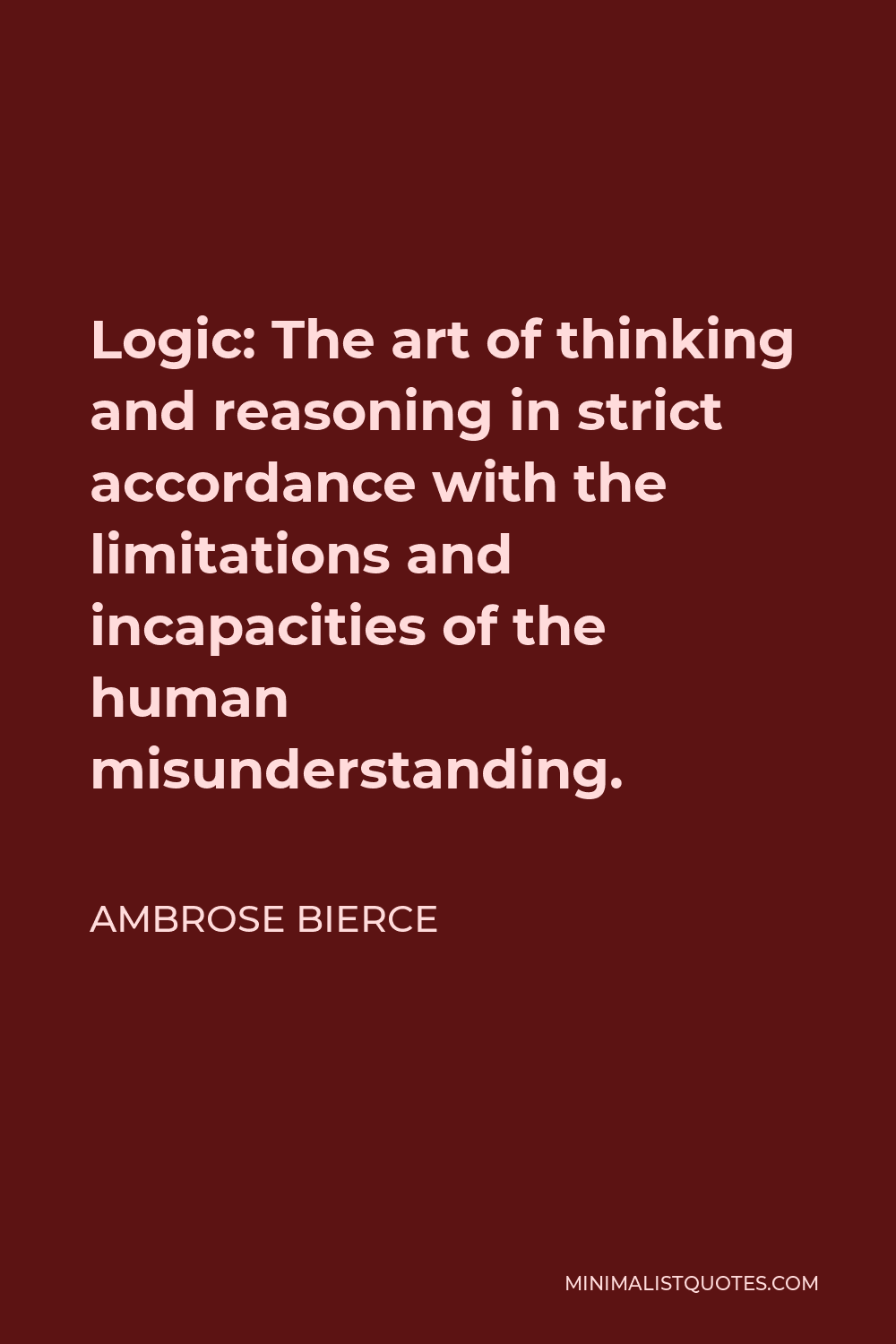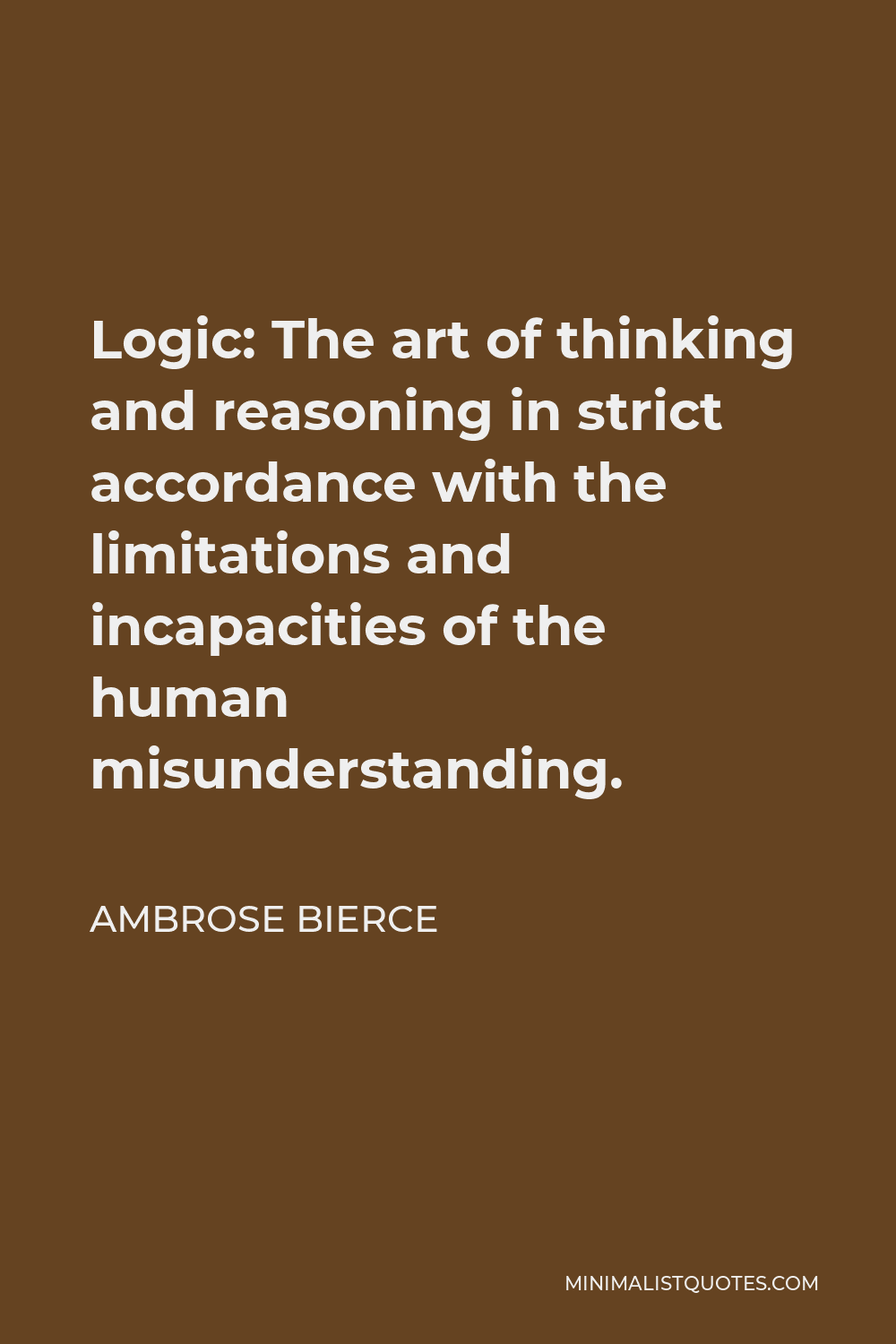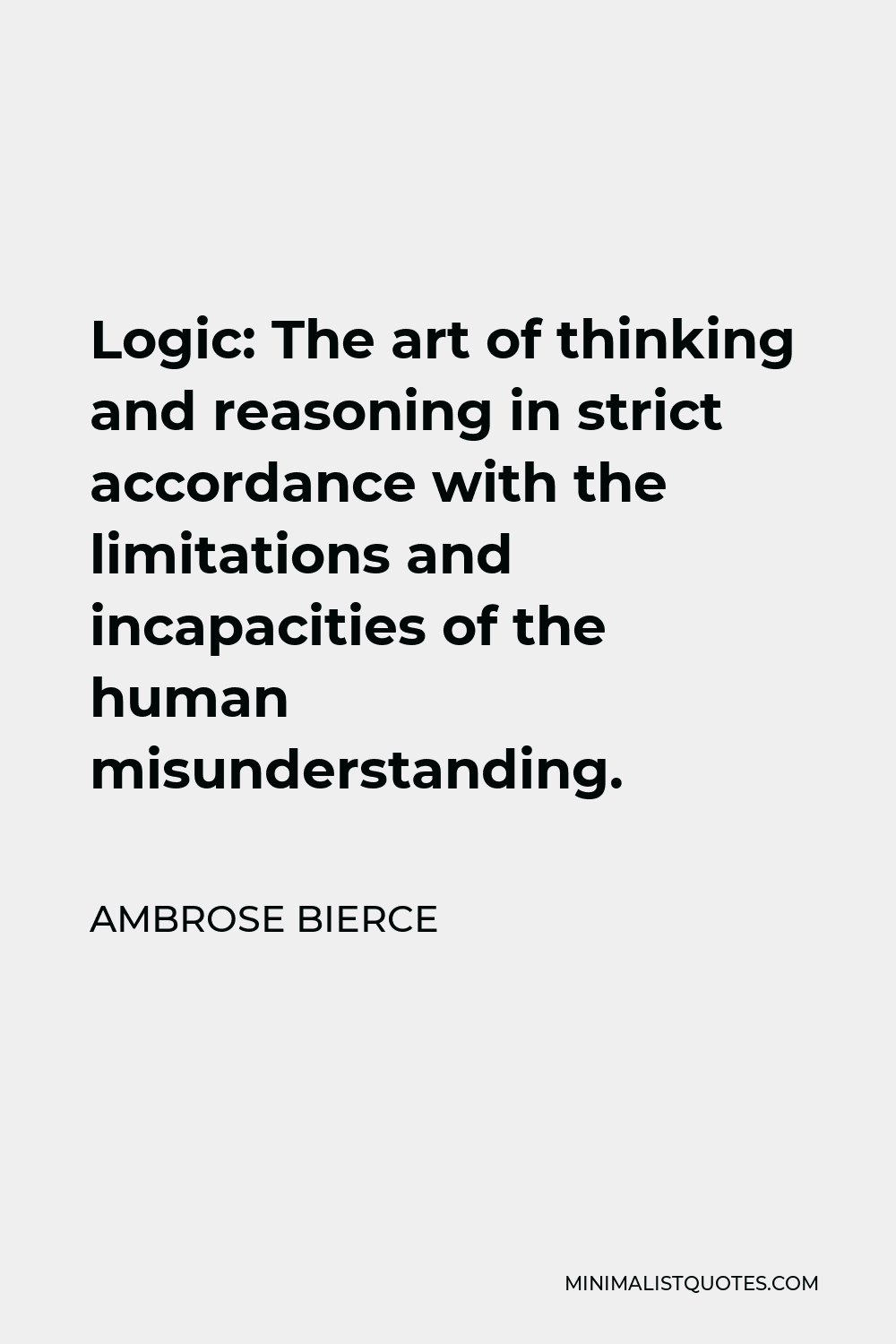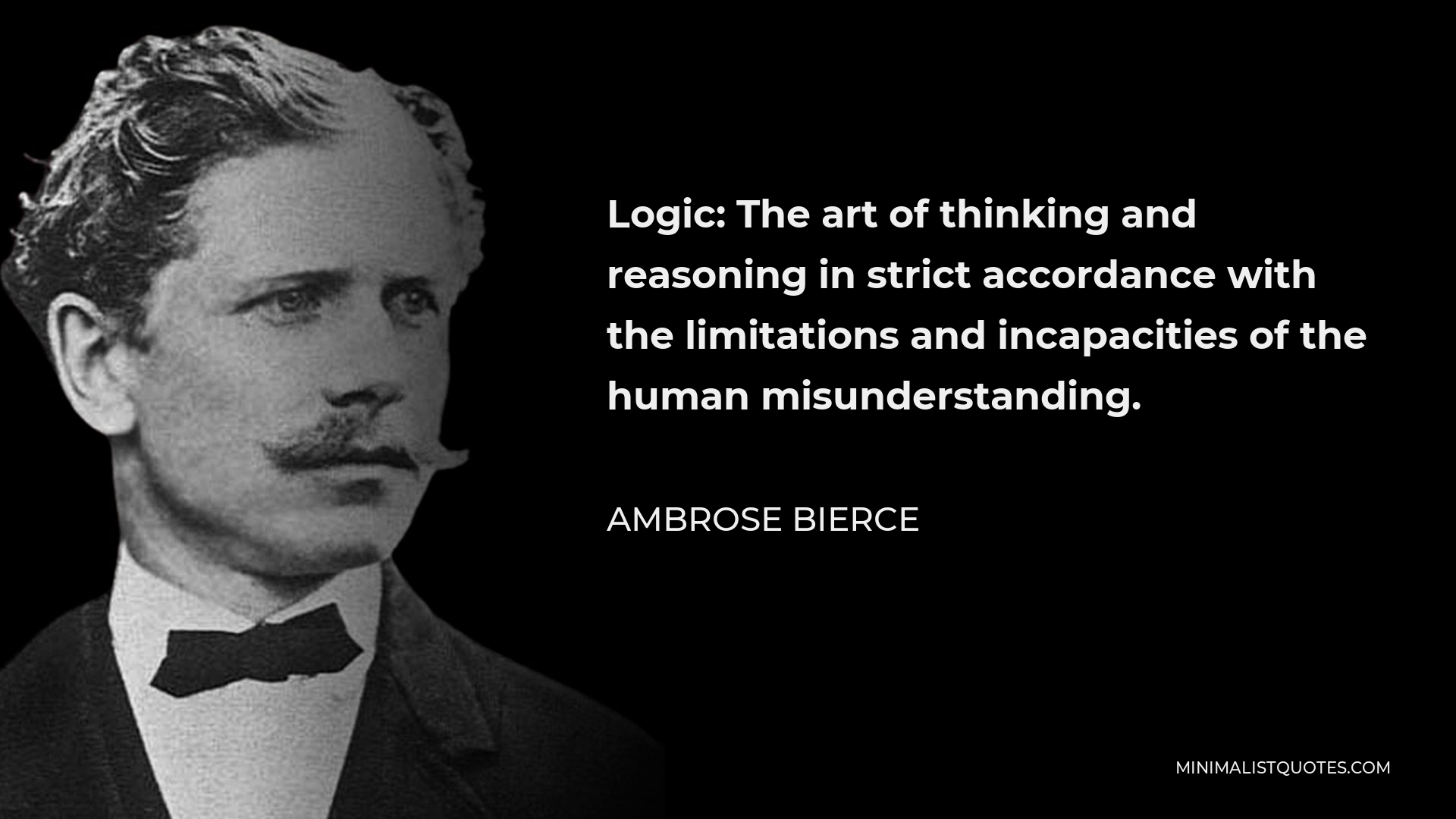What is a democrat? One who believes that the republicans have ruined the country. What is a republican? One who believes that the democrats would ruin the country.
AMBROSE BIERCELogic: The art of thinking and reasoning in strict accordance with the limitations and incapacities of the human misunderstanding.
More Ambrose Bierce Quotes
-





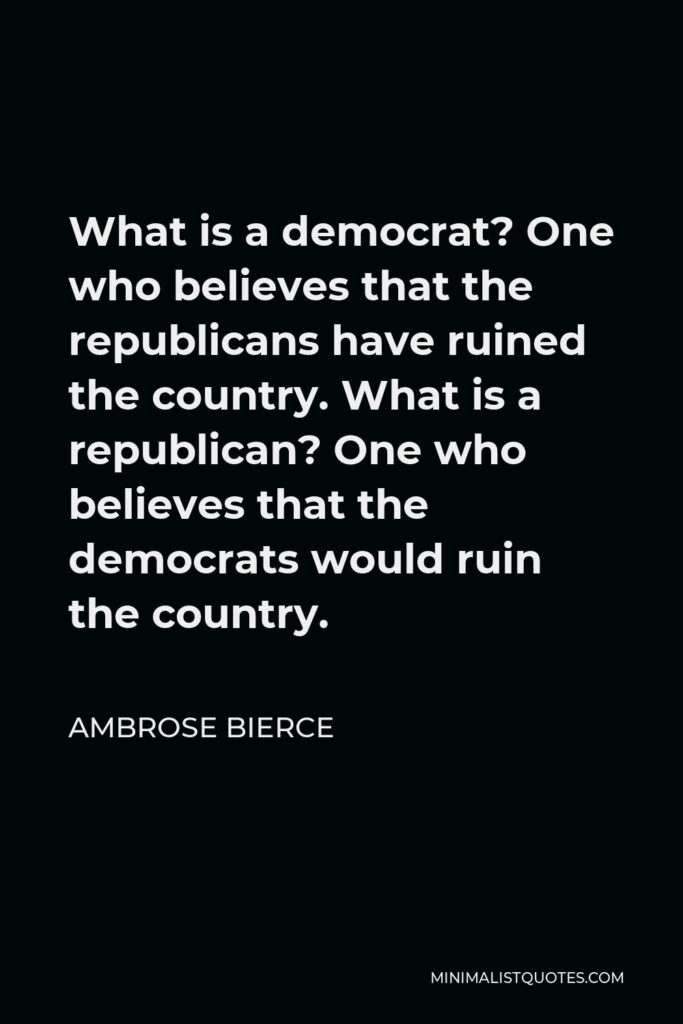

-





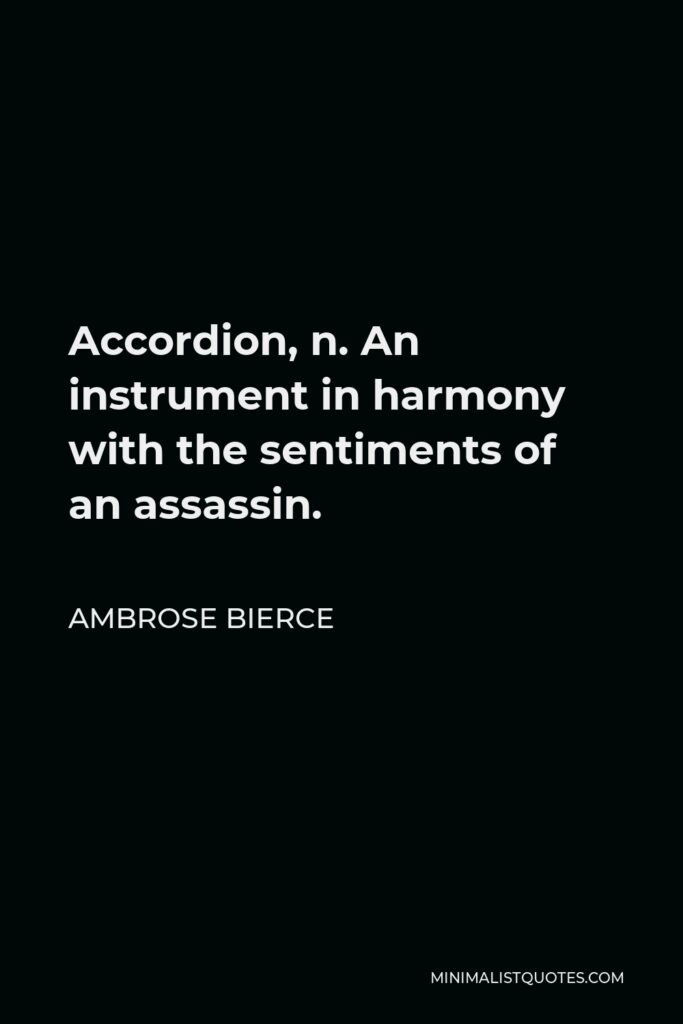

Accordion, n. An instrument in harmony with the sentiments of an assassin.
AMBROSE BIERCE -





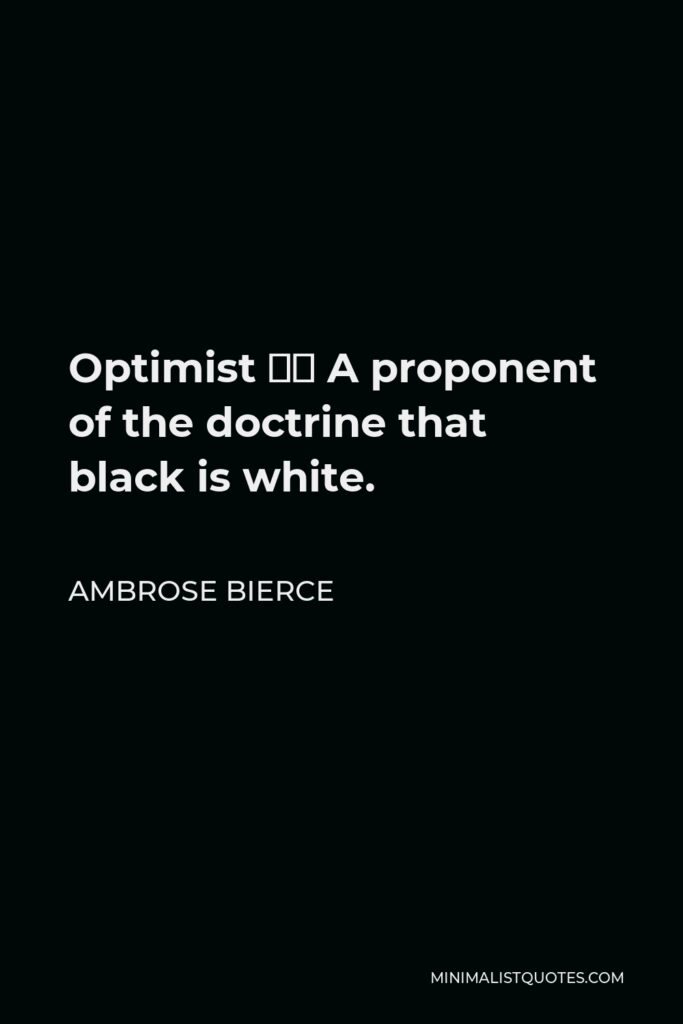

Optimist – A proponent of the doctrine that black is white.
AMBROSE BIERCE -





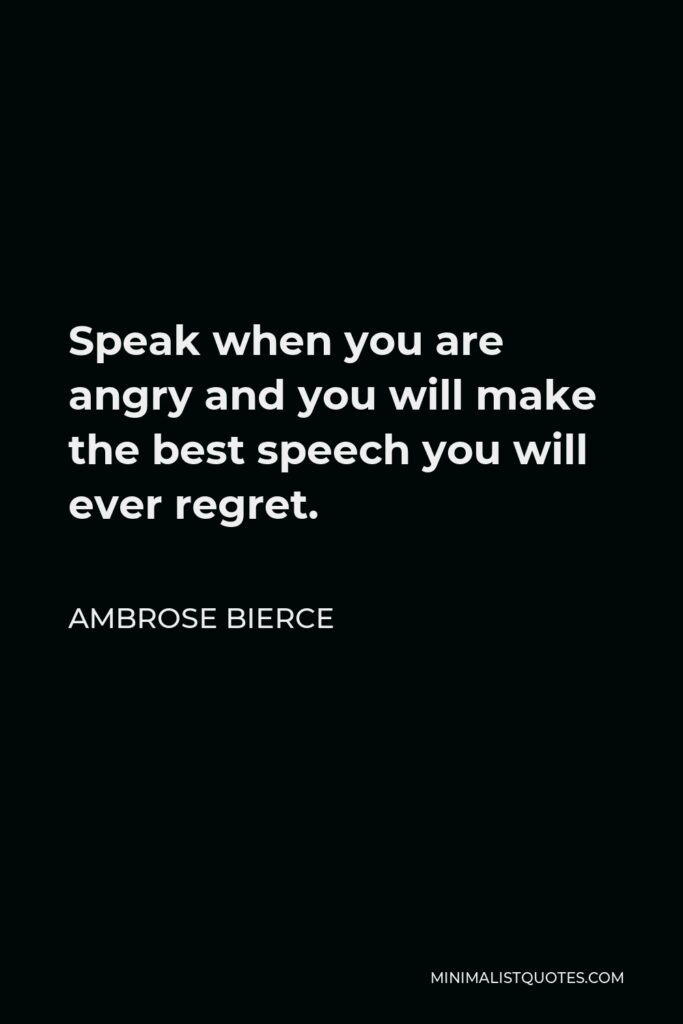

Speak when you are angry and you will make the best speech you will ever regret.
AMBROSE BIERCE -





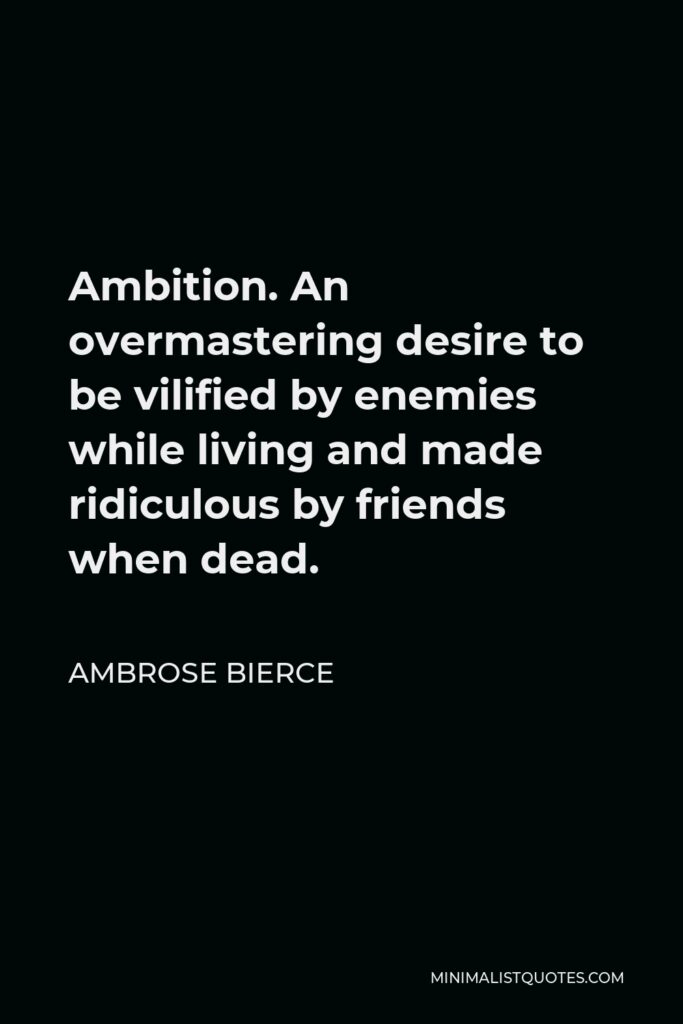

Ambition. An overmastering desire to be vilified by enemies while living and made ridiculous by friends when dead.
AMBROSE BIERCE -





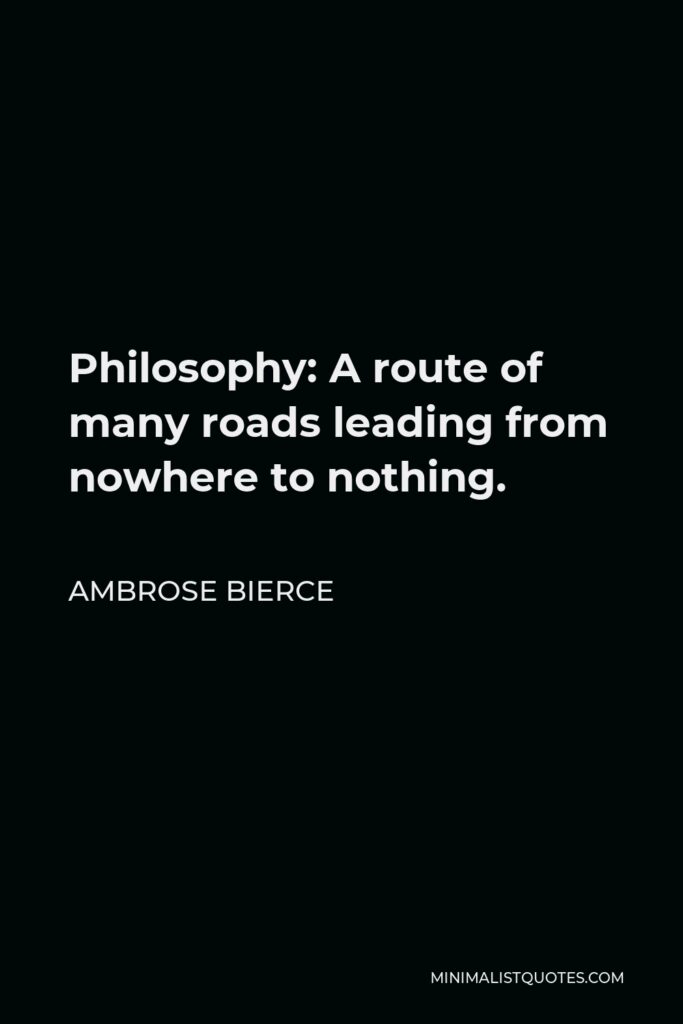

Philosophy: A route of many roads leading from nowhere to nothing.
AMBROSE BIERCE -





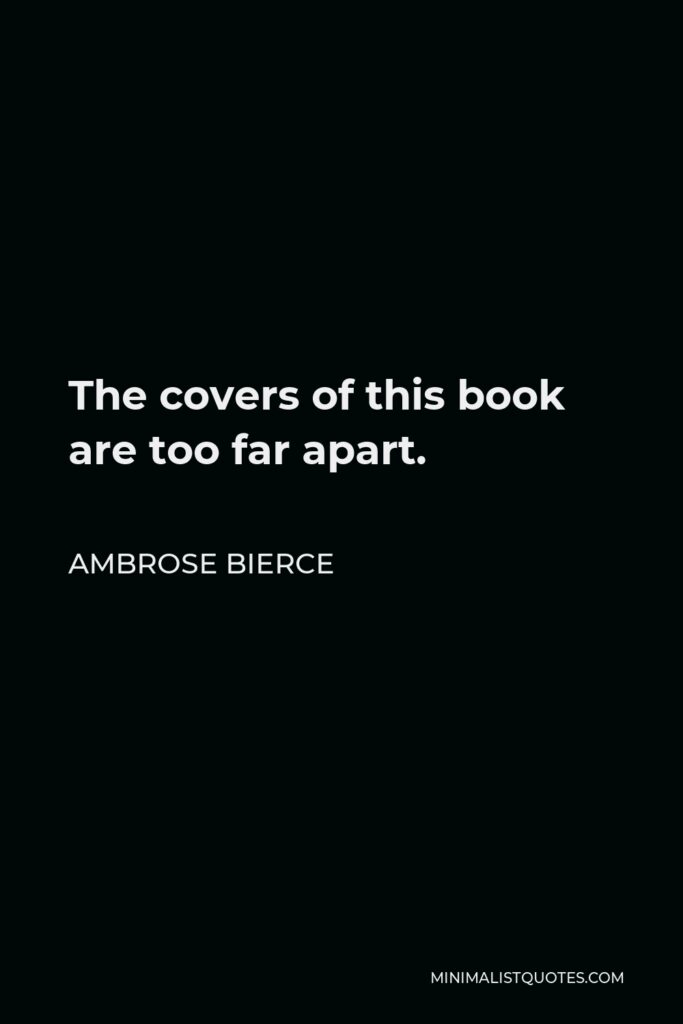

The covers of this book are too far apart.
AMBROSE BIERCE -





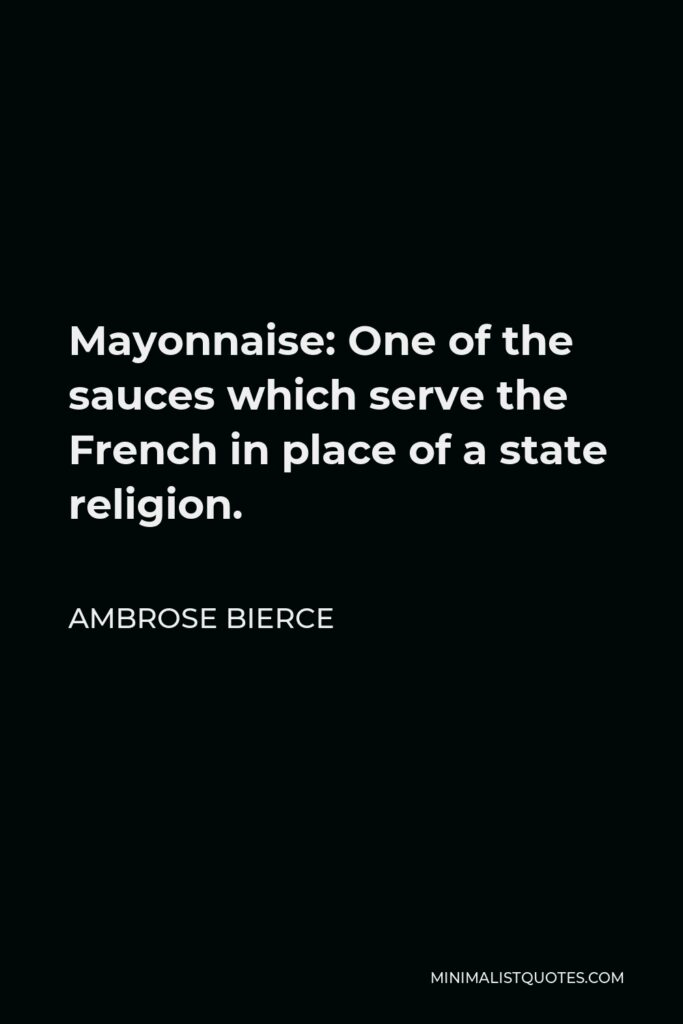

Mayonnaise: One of the sauces which serve the French in place of a state religion.
AMBROSE BIERCE -





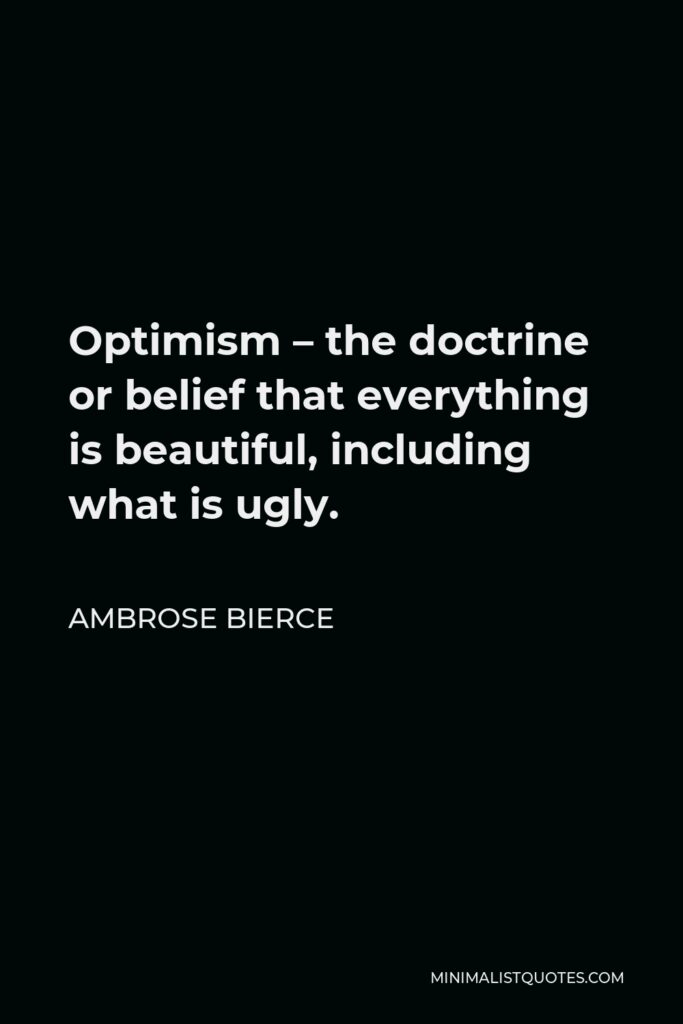

Optimism – the doctrine or belief that everything is beautiful, including what is ugly.
AMBROSE BIERCE -





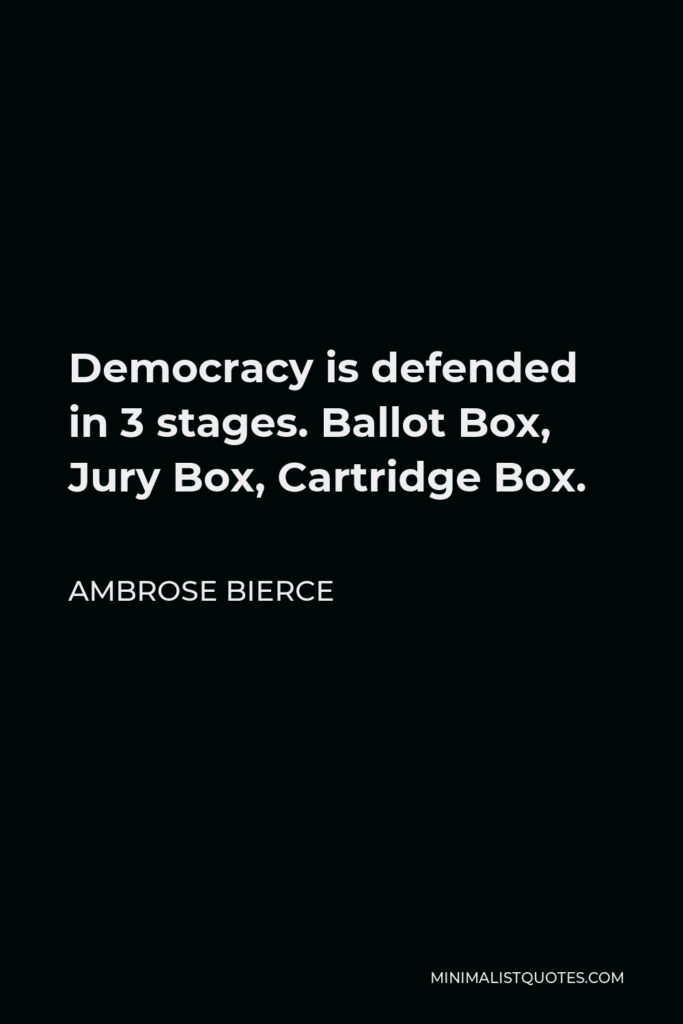

Democracy is defended in 3 stages. Ballot Box, Jury Box, Cartridge Box.
AMBROSE BIERCE -





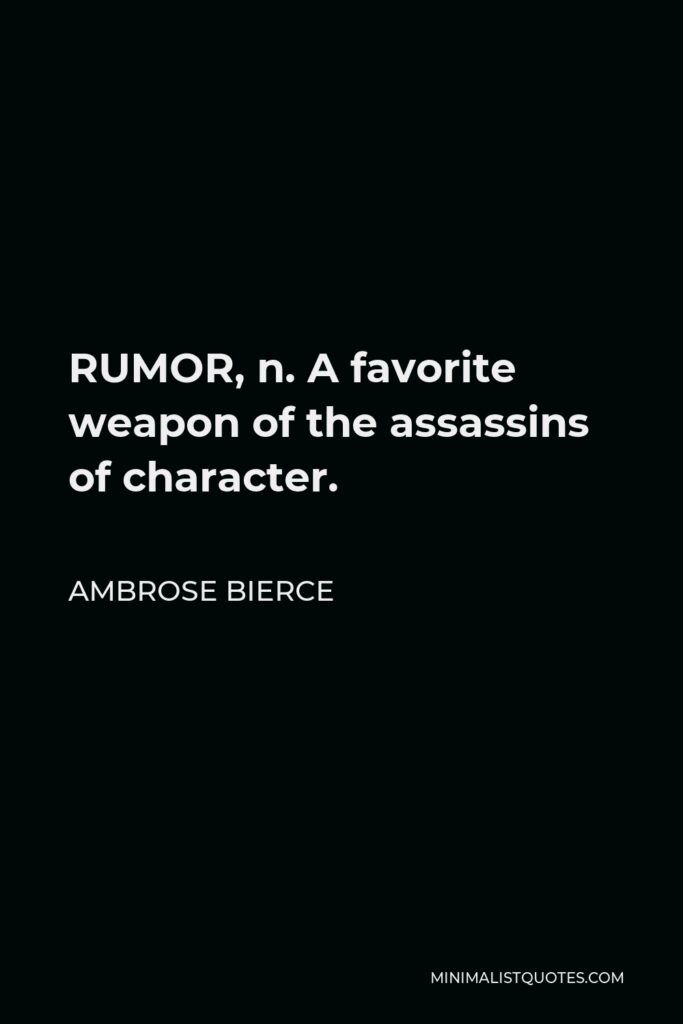

RUMOR, n. A favorite weapon of the assassins of character.
AMBROSE BIERCE -





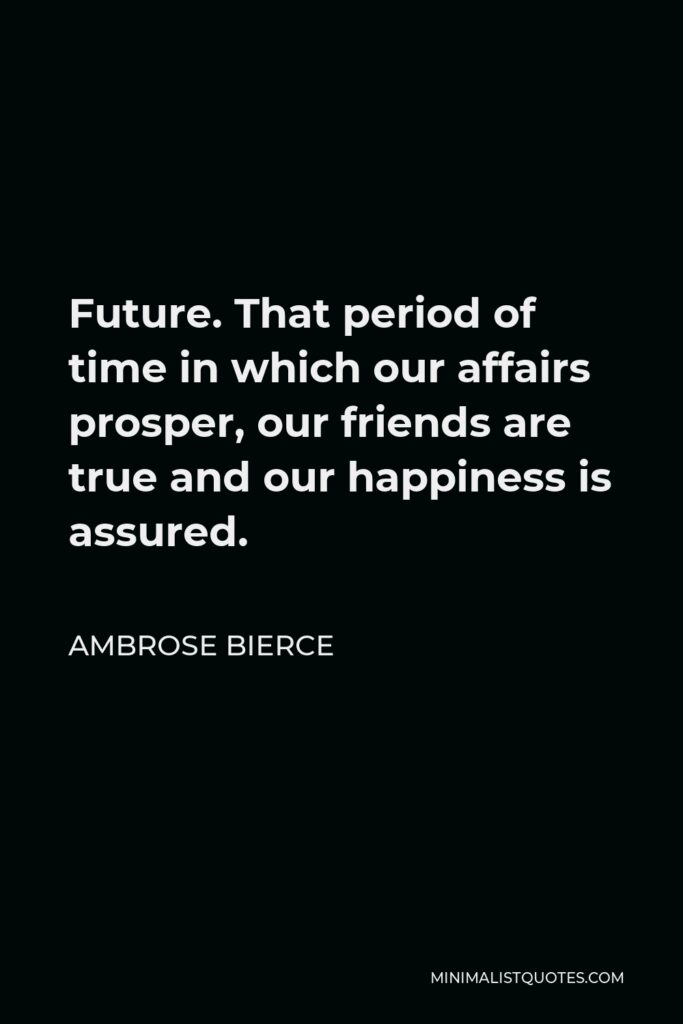

Future. That period of time in which our affairs prosper, our friends are true and our happiness is assured.
AMBROSE BIERCE -





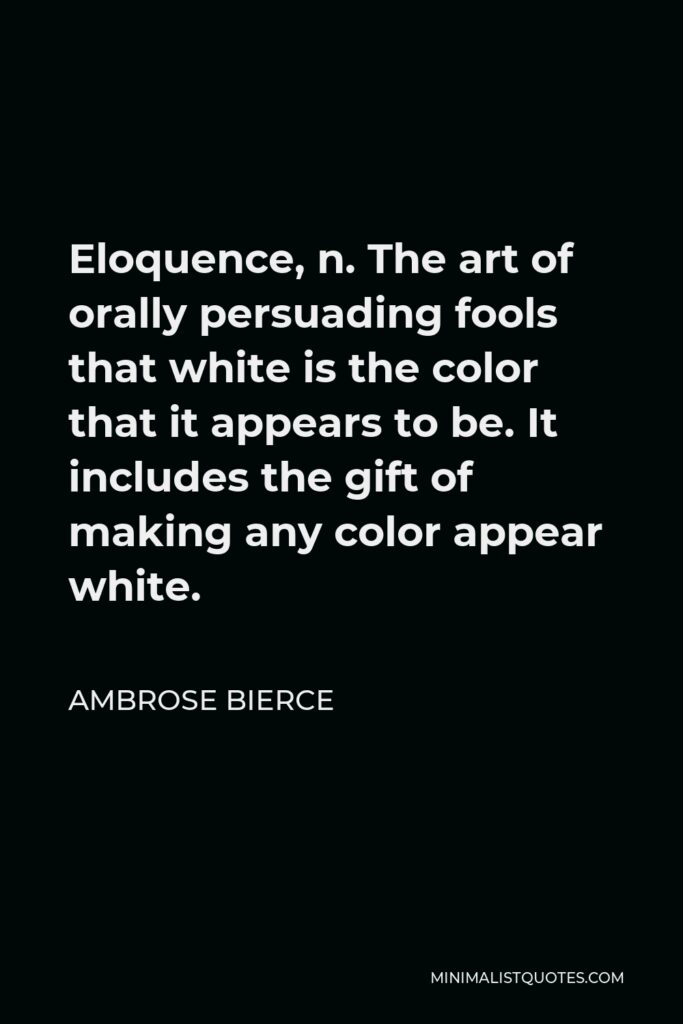

Eloquence, n. The art of orally persuading fools that white is the color that it appears to be. It includes the gift of making any color appear white.
AMBROSE BIERCE -





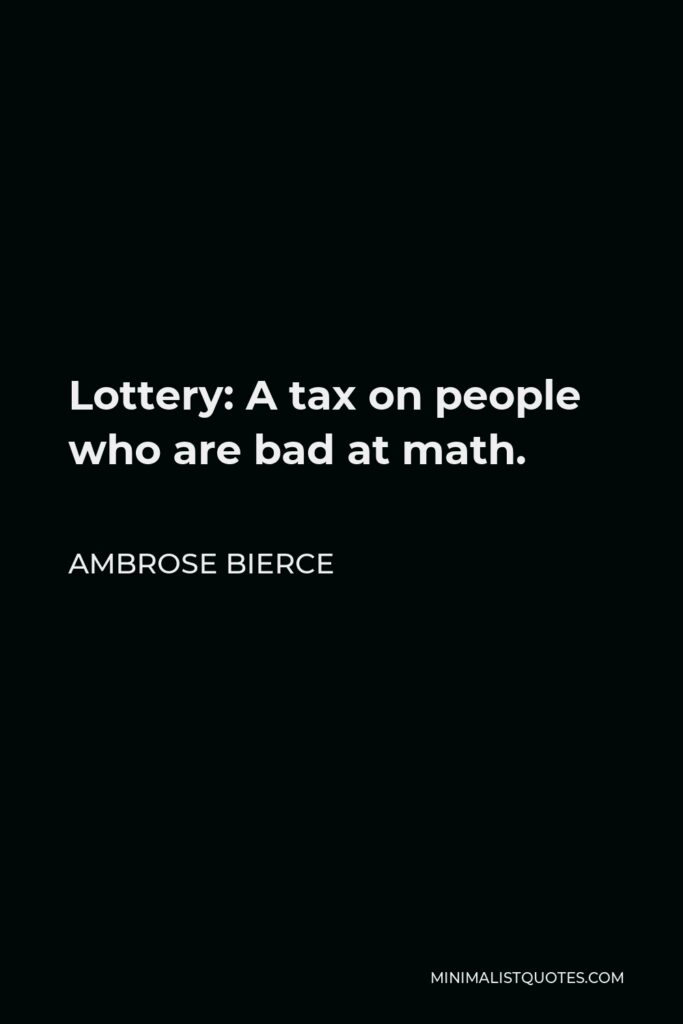

Lottery: A tax on people who are bad at math.
AMBROSE BIERCE -





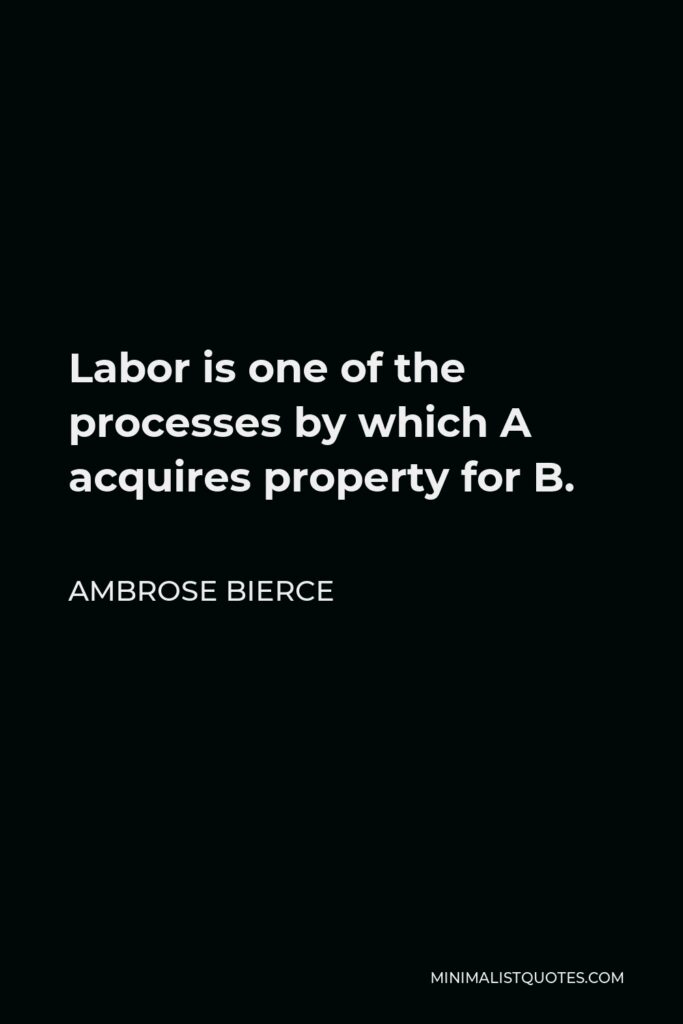

Labor is one of the processes by which A acquires property for B.
AMBROSE BIERCE -





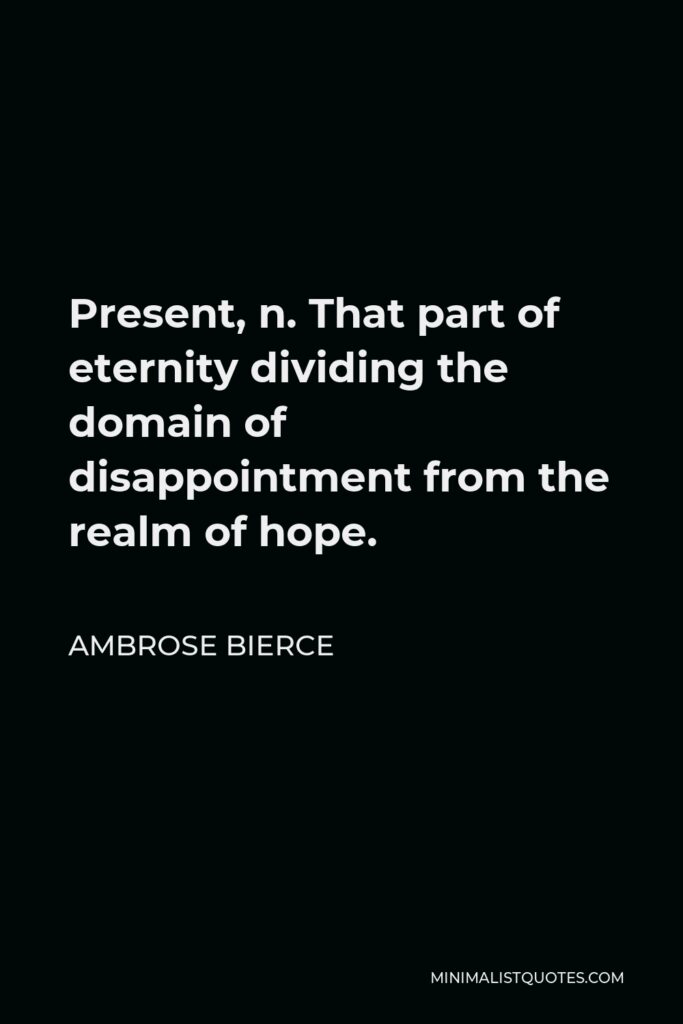

Present, n. That part of eternity dividing the domain of disappointment from the realm of hope.
AMBROSE BIERCE
